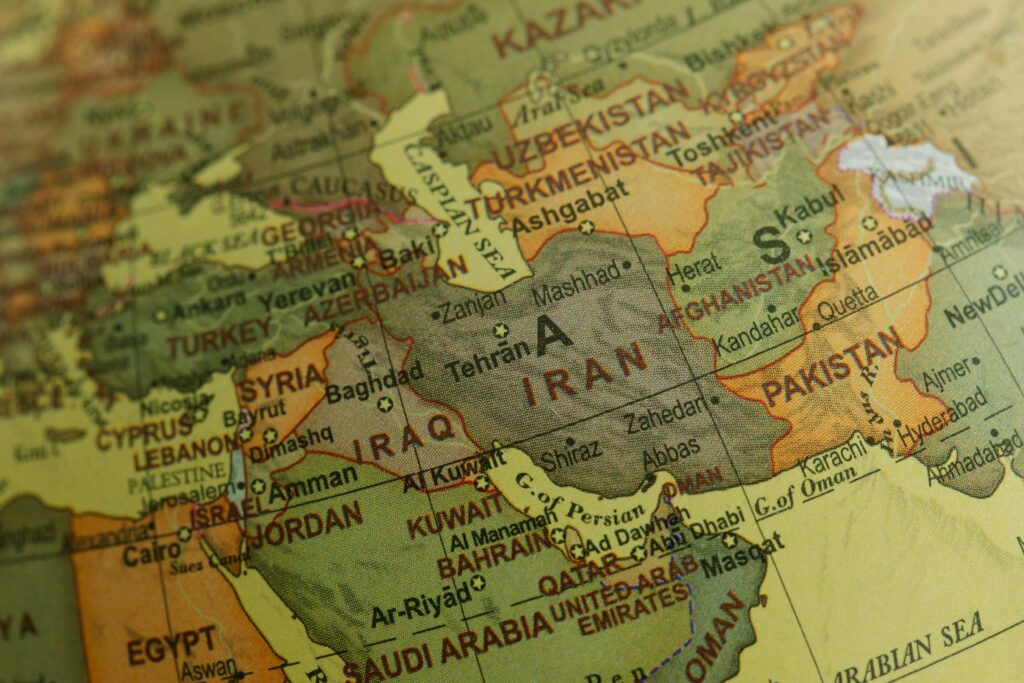- Politics
- Gulf Region
- By Manohar Patil
The Volatile Landscape: Understanding Instability in the Gulf Region
The Gulf region, a crucible of global energy supply and a strategic geopolitical crossroads, is no stranger to regional instability. A complex interplay of historical grievances, ideological rivalries, economic pressures, and external interventions continually fuels a volatile environment. The recent escalation of the Iran-Israel conflict serves as a stark reminder of how quickly latent tensions can erupt into overt confrontations, with far-reaching consequences for both the immediate vicinity and the wider international community.
Deep-Rooted Rivalries and Proxy Wars
At the heart of the Gulf’s instability lies the enduring rivalry between two regional powerhouses: Saudi Arabia and Iran. This competition, often framed along sectarian lines (Sunni vs. Shia), manifests in a series of proxy conflicts across the Middle East. From the devastating civil war in Yemen, where Saudi-led coalitions and Iranian-backed Houthi rebels clash, to political maneuvering in Lebanon, Iraq, and Syria, the struggle for regional hegemony constantly undermines peace and security. These proxy wars drain resources, displace populations, and create fertile ground for extremist ideologies, perpetuating cycles of violence.
Beyond the Saudi-Iran dynamic, other localized rivalries within the Gulf Cooperation Council (GCC) states also contribute to fragility. Historical border disputes, economic competition, and differing foreign policy objectives, as seen in past diplomatic spats, can strain regional cohesion and make a unified response to external threats more challenging.
Economic Vulnerabilities and Diversification Challenges
Despite vast oil wealth, many Gulf economies face inherent vulnerabilities that contribute to instability. Over-reliance on hydrocarbon revenues makes them susceptible to global oil price fluctuations. While many states have embarked on ambitious diversification agendas (like Saudi Arabia’s Vision 2030 or UAE’s focus on tourism and technology), these transitions are long-term endeavors. High youth unemployment, a burgeoning population, and the need to create sustainable non-oil sectors present significant socio-economic challenges. Failure to adequately address these issues can lead to social unrest and political discontent, providing opportunities for extremist groups to gain traction.
Moreover, global shifts towards renewable energy sources and efforts to reduce carbon emissions pose a long-term existential threat to the traditional economic model of the Gulf. Adapting to this changing energy landscape while maintaining internal stability is a monumental task.
External Intervention and Geopolitical Chessboards
The Gulf’s strategic importance as a global energy hub ensures constant external involvement from major world powers. The United States, with its extensive military presence, historically plays a significant role in maintaining regional security and ensuring the free flow of oil. However, the approaches of various external actors, including China and Russia, add layers of complexity. Competing interests and alliances can exacerbate existing rivalries, turning the Gulf into a geopolitical chessboard where regional conflicts become proxy battles for global influence.
The ongoing Israeli-Palestinian conflict, while not directly within the Gulf, casts a long shadow over the region, fueling resentment and providing a rallying cry for various non-state actors. Recent direct confrontations between Iran and Israel further underscore how interconnected the security dynamics of the broader Middle East are, with the potential for any spark to ignite a wider regional conflagration. The critical Strait of Hormuz, through which a significant portion of the world’s oil transits, remains a strategic chokepoint highly vulnerable to disruption in times of heightened tension.
The Path Forward
Addressing regional instability in the Gulf requires a multi-faceted approach. De-escalation of existing conflicts, particularly the Iran-Israel standoff and the Yemeni civil war, is paramount. Fostering inclusive governance, addressing economic grievances, and accelerating diversification efforts are crucial for long-term domestic stability. On the international front, sustained diplomatic engagement, aimed at reducing tensions and building regional security frameworks, is essential to navigate this increasingly complex and dangerous landscape. The stability of the Gulf is not merely a regional concern; it is a global imperative.
Share this Article
WhatsApp
LinkedIn
Telegram
Email
Get Daily Updates to Your Inbox
Subscribe to News Letter
Advertisement

Related Articles
Lorem ipsum dolor sit amet, consectetur adipiscing elit. Ut elit tellus, luctus nec ullamcorper mattis, pulvinar dapibus leo.

